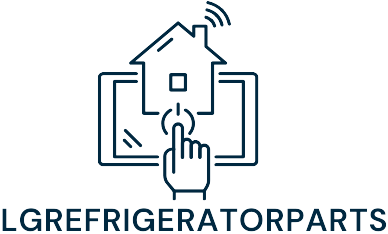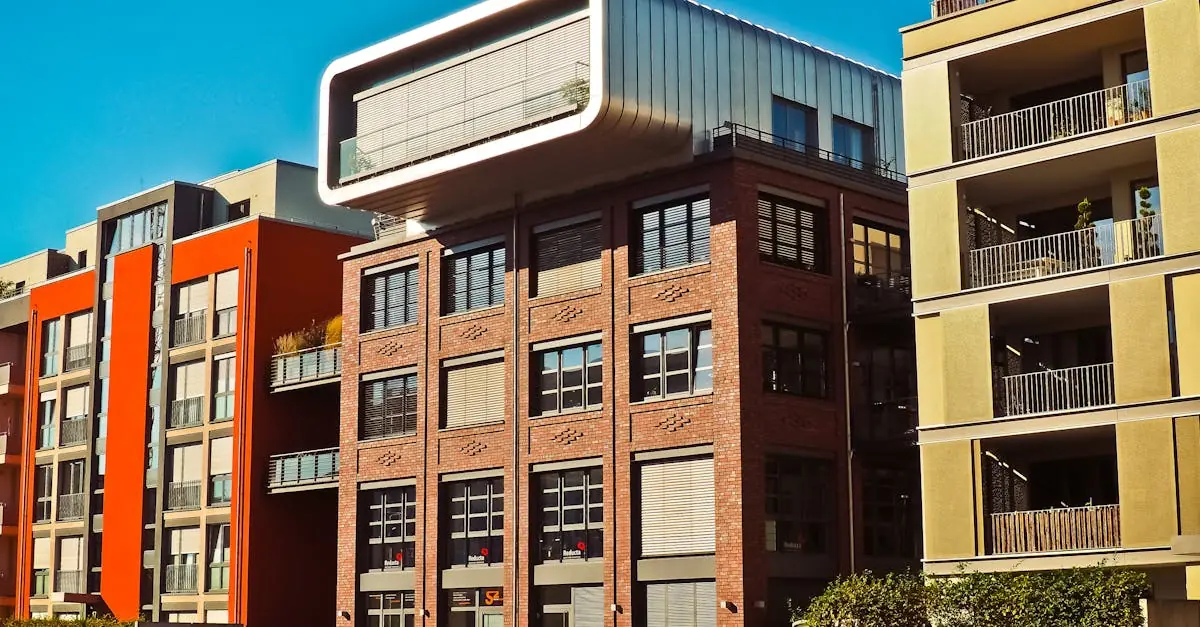Table of Contents
ToggleNavigating the world of condo development laws can feel like trying to solve a Rubik’s Cube blindfolded. With a mix of zoning regulations, building codes, and community guidelines, it’s no wonder developers often find themselves scratching their heads. But fear not! Understanding these laws is the key to unlocking the door to successful condo projects.
Overview of Condo Development Laws
Condo development laws encompass various regulations and guidelines, impacting every aspect of the project. Zoning regulations dictate land use, determining where condo buildings can exist. Building codes establish safety and design standards that developers must follow. Community guidelines often influence aesthetics and functionality, ensuring new developments align with existing neighborhoods.
Local governments typically enforce these regulations, making compliance crucial for successful condo projects. Developers must navigate permits, inspections, and approvals, steering through complex bureaucratic processes. Each city or municipality may have unique requirements, requiring diligent research and planning.
Specific state laws also play a role, affecting condominium associations and governance structures. These laws can determine how fees, maintenance obligations, and decision-making processes operate within a condo community. Understanding these legal frameworks helps developers foresee potential hurdles.
Additionally, marketing a new condo project hinges on accurately representing compliance with applicable laws. Misrepresentation may not only harm credibility but also lead to costly legal issues.
In fluid markets, condo development laws can change, introducing new risks and opportunities. Staying informed about these developments positions builders strategically within their communities. Prospective developers benefit from consulting legal experts who specialize in condo laws, ensuring compliance and mitigating risks.
Key Regulations Affecting Condo Development
Developers must navigate several key regulations to ensure successful condo projects. Zoning laws and building codes represent foundational elements shaping the landscape of condo development.
Zoning Laws
Zoning laws dictate land use and density for condo projects. Each municipality establishes its own zoning ordinances, which outline where condos can be built and at what height. Understanding these regulations helps developers avoid costly missteps. Local governments typically determine zoning categories, such as residential, commercial, or mixed-use. Compliance with zoning requirements is crucial for obtaining necessary permits. For example, some areas may have restrictions on the number of units per acre. Addressing zoning concerns early in the planning process can streamline development and minimize delays.
Building Codes
Building codes establish safety and structural standards for condos. These codes cover various aspects, including materials, electrical systems, plumbing, and fire safety. Compliance ensures the safety of residents and the longevity of the structure. Local governments enforce these codes through inspections and permit approvals. Regulations enforce minimum standards, which can protect against future legal issues. Variances may be available for projects that encounter strict building codes, but securing these exceptions often requires extensive justification. Meeting building codes is essential for a successful project launch and occupation readiness.
Legal Considerations in Condo Development
Understanding the legal aspects of condo development is crucial for successful projects. Developers must navigate ownership structures and property management regulations to ensure compliance and operational efficiency.
Ownership Structures
Ownership structures in condo development dictate how individual units are owned and managed within a community. Condominiums typically operate under a condominium association that governs common areas and establishes rules. Each owner holds title to their unit and shares ownership of common elements like pools and lobbies. This shared ownership requires clear guidelines to avoid disputes. Developers must also consider the impact of state laws on ownership transfers and financing options. Setting up an appropriate governance structure is essential for maintaining order and ensuring accountability within the community.
Property Management Regulations
Property management regulations play a pivotal role in maintaining condo developments. These regulations govern daily operations, including maintenance, leasing, and tenant relations. Many states require property managers to hold specific licenses or certifications, ensuring they meet professional standards. Additionally, associations must comply with local laws relating to tenant rights and fair housing. Establishing clear management policies mitigates legal risks and enhances resident satisfaction. Developers should involve legal experts in drafting these policies to reflect compliance with all applicable regulations and to promote harmonious living in the community.
Challenges in Condo Development
Developers face numerous obstacles in navigating condo development laws. These challenges often stem from overlapping regulations and varying enforcement across municipalities.
Common Legal Issues
Developers frequently encounter issues related to zoning compliance. Each municipality has specific land use ordinances that dictate the type and density of proposed projects. Unforeseen complications can arise during inspections if building codes aren’t followed, which are crucial for ensuring safety standards. Ownership structure is another common legal concern; misunderstandings can complicate the governance of the condominium association. Additionally, legal disputes over common areas may lead to costly litigation or delays in project timelines.
Mitigating Legal Risks
Consulting legal experts plays a vital role in reducing risks associated with condo development. By engaging attorneys early in the planning process, developers can understand complex regulations and ensure compliance. Thoroughly reviewing zoning laws and building codes prevents costly mistakes, avoiding penalties or project halts. Establishing clear ownership structures helps streamline decision-making processes within the community. Implementing comprehensive property management policies further promotes harmonious living and adherence to local laws, fostering a positive environment for residents.
Future Trends in Condo Development Laws
Condo development laws are evolving to address changing market demands and community needs. Increased urbanization leads to a higher demand for multi-family housing, prompting municipalities to adapt zoning laws. Several cities now implement flexible zoning regulations, allowing higher density developments while maintaining community character.
Sustainability is becoming a priority in condo developments. As environmental concerns grow, many local governments are adopting green building codes. These codes offer incentives for developers who incorporate energy-efficient designs and sustainable materials into their projects. Reducing carbon footprints through innovative construction practices is essential for modern developments.
Technological advancements significantly impact condo development laws as well. Smart home technology integration is becoming a standard expectation among buyers. Local regulations now often include guidelines for incorporating technology into building systems, from energy management to security features. Developers must stay informed about these evolving requirements to remain competitive.
Communities are also demanding greater transparency in governance structures. Many condo associations are moving towards more inclusive decision-making processes. This shift promotes resident engagement and enhances trust between developers and communities. Legal frameworks are increasingly accommodating these changes to promote cooperative living.
Furthermore, affordable housing initiatives are gaining traction in many jurisdictions. Various states are mandating developers set aside a portion of units for low-income residents. Compliance with these new policies becomes crucial for successful project approvals.
Anticipating these trends allows developers to prepare for future challenges in condo development laws. Adapting to evolving regulations and community expectations not only ensures compliance but also fosters sustainable, vibrant living environments.
Navigating condo development laws is a multifaceted endeavor that requires careful consideration and expertise. Developers must stay informed about evolving regulations and trends to ensure compliance and foster thriving communities. By engaging legal professionals and conducting thorough research, they can mitigate risks and avoid costly missteps. Understanding the interplay between zoning, building codes, and property management regulations is crucial for successful project execution. As the landscape of condo development continues to change, adaptability and foresight will be key in creating sustainable living environments that meet the needs of future residents.



